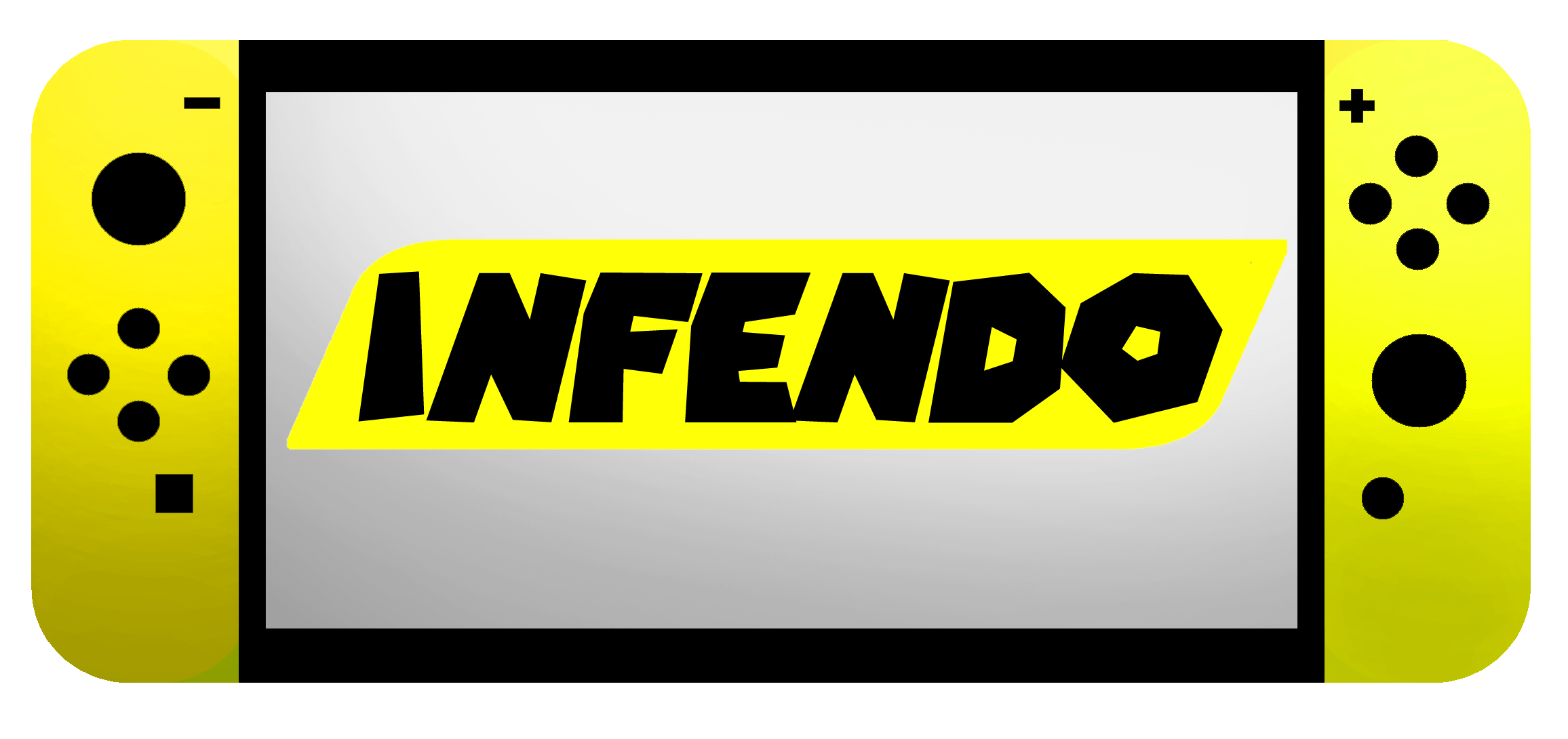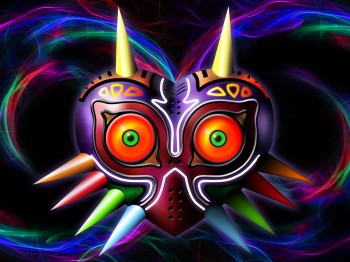Last week’s Nintendo Direct has the Nintendo Universe buzzing with excitement, much of it stirred up by the announcement of the Majora’s Mask remake coming to the 3DS. While many are bouncing with excitement, others are cringing at the thought of tackling this franchise misfit again. All this brings us to an enormously debated question: Where does Majora’s Mask sit in the Zelda hierarchy? Is it truly a brilliant masterpiece, misunderstood by some but revered by others, full of unique twists, innovative storylines and refreshing characters? Or is it an overrated misstep, a rare stumble in the Zelda timeline, a game in over its head in attempts to one up its fantastic predecessor?
Many things set Majora’s Mask apart from the majority of the Zelda franchise. A strange, sad tale, Majora’s Mask wanders farthest away from the staples of the series, and ventures off into unforeseen territory. While Nintendo easily could have stuck to the formula, and simply made “Ocarina of Time 2”, instead they took chances, risks which undoubtedly paid off for many fans. An excruciatingly emotional game, in a time when video games rarely carried emotions, Majora’s Mask was dark, at times even depressing. From the opening moments the game is stricken with a sense of loneliness, as Link searches dejectedly for Navi. Instead he comes across the Skull Kid, possibly the series’ strangest and most twisted force of evil, which for many was a refreshing change from the never-ending battle with Ganondorf.
Along with the dark, sorrowful, bleakness, Majora’s Mask took other brave steps away from its predecessors. Leaving the world of Hyrule behind, the game takes place in the bizarre land of Termina, a land where Link is lost, without his identity. In his quest to regain his identity, and save this new land, Majora’s Mask took other twists and turns, implementing the unique use of masks as a way to transform and gain abilities. Then there is the biggest change of all, perhaps the one mechanic of Majora’s Mask that is so responsible for alienating some fans: the dreaded 3-day countdown. As Link, we are forced to relive the same three days over and over, a feat which some found fascinatingly unique, and others found to be frustratingly difficult to overcome.
Where it sits in the echelon of one of the greatest series of all time is certainly debatable, and we, the Infendo team, have compared our personal favorites in an attempt to rank the greatest Zelda games of all time. Majora’s Mask is certainly a divisive entry in the Zelda universe but there is no denying the game is a bravely unique departure from the Zelda formula, and one which will capture many more imaginations in the near future.
Please feel free to comment and share your top 5 Zelda games of all time.
15. Zelda II: Adventure of Link – NES, 1988
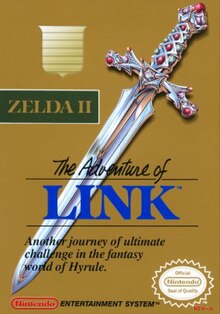 The black sheep of the early-era Zelda games, Zelda 2 took some sharp turns and made some glaring gameplay changes following the original game. Adding RPG elements, such as MP and Experience points, and introducing side-scrolling platforming sections, proved to be unsuccessful and have caused many to regard Zelda 2 as a disappointment.
The black sheep of the early-era Zelda games, Zelda 2 took some sharp turns and made some glaring gameplay changes following the original game. Adding RPG elements, such as MP and Experience points, and introducing side-scrolling platforming sections, proved to be unsuccessful and have caused many to regard Zelda 2 as a disappointment.
14. Phantom Hourglass – DS, 2009
 Phantom Hourglass was the first Zelda game to test out touch screen controls, which were largely a failure. Aside from the neat ability to make your own notes on maps, the touch screen controls were mostly annoying and often caused you to move in ways you hadn’t intended, which hurt the overall gameplay of this entry.
Phantom Hourglass was the first Zelda game to test out touch screen controls, which were largely a failure. Aside from the neat ability to make your own notes on maps, the touch screen controls were mostly annoying and often caused you to move in ways you hadn’t intended, which hurt the overall gameplay of this entry.
13. Spirit Tracks – DS, 2009
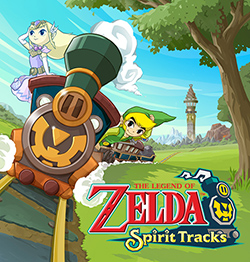 Spirit Tracks took all the positives of Phantom Hourglass and slightly improved upon them. The touch controls were significantly better which saved this game from being a complete disappointment. Gone were Links days on a sailing boat, replaced with a train to travel to various locations throughout.
Spirit Tracks took all the positives of Phantom Hourglass and slightly improved upon them. The touch controls were significantly better which saved this game from being a complete disappointment. Gone were Links days on a sailing boat, replaced with a train to travel to various locations throughout.
12. Four Swords/Four Swords Adventure – GBA, 2002/Gamecube, 2004
 Multiplayer Zelda! Four Swords was certainly one-of-a-kind, the only game in the series to offer up multiplayer. Four Swords holds true to the Zelda experience, and has some incredibly unique ideas. Players can split up when inside caves and dungeons, as game play switches to the Game Boy Advance screens while inside, making for true teamwork. Where it suffered greatly was from its ridiculous hardware requirement, four Game Boy Advances with four link cables were needed to properly play, but if you ever got the opportunity to play it as it was meant, it is a truly remarkable feat.
Multiplayer Zelda! Four Swords was certainly one-of-a-kind, the only game in the series to offer up multiplayer. Four Swords holds true to the Zelda experience, and has some incredibly unique ideas. Players can split up when inside caves and dungeons, as game play switches to the Game Boy Advance screens while inside, making for true teamwork. Where it suffered greatly was from its ridiculous hardware requirement, four Game Boy Advances with four link cables were needed to properly play, but if you ever got the opportunity to play it as it was meant, it is a truly remarkable feat.
11. Oracle of Ages/Oracle of Seasons – Gameboy Color, 2001
 Cashing in on the success of the Pokemon series, Nintendo attempted to create two connected Zelda games. Where Seasons focused more on boss battles and action, Ages had a bigger focus on puzzles. Completing one game provided you a password that, when entered into the other game, made significant differences to the dialogue and the final boss battle.
Cashing in on the success of the Pokemon series, Nintendo attempted to create two connected Zelda games. Where Seasons focused more on boss battles and action, Ages had a bigger focus on puzzles. Completing one game provided you a password that, when entered into the other game, made significant differences to the dialogue and the final boss battle.
10. Legend of Zelda – NES, 1987
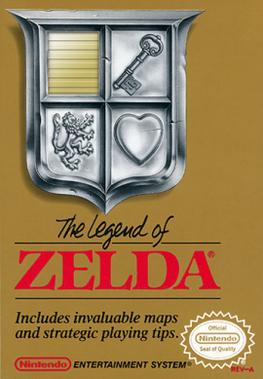 With very little guidance, this series entrance introduced us to a massive open world, filled with secrets, treasure and a variety of monsters. A powerfully unique game for its time, the Legend of Zelda has arguably not aged well, but will always hold a special place in any Zelda fans heart.
With very little guidance, this series entrance introduced us to a massive open world, filled with secrets, treasure and a variety of monsters. A powerfully unique game for its time, the Legend of Zelda has arguably not aged well, but will always hold a special place in any Zelda fans heart.
9. The Minish Cap – GBA, 2004

8. Twilight Princess – Wii/Gamecube, 2006
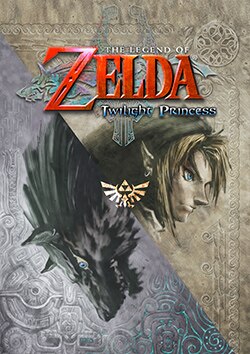 Twilight Princess is arguably the older sibling to Ocarina of Time. The game copies many of Ocarina’s characteristics, and pumps it up with sharper graphics, deeper storyline and a more fleshed out combat system. It also introduced us to a fan favorite in Midna. However, Twilight did have its downfalls. Wolf Link, the Twilight Realm, and, for many, the horrible Wii waggle controls were marks against an otherwise solid entry in the series.
Twilight Princess is arguably the older sibling to Ocarina of Time. The game copies many of Ocarina’s characteristics, and pumps it up with sharper graphics, deeper storyline and a more fleshed out combat system. It also introduced us to a fan favorite in Midna. However, Twilight did have its downfalls. Wolf Link, the Twilight Realm, and, for many, the horrible Wii waggle controls were marks against an otherwise solid entry in the series.
7. Link’s Awakening – Gameboy, 1993
– Lewis Pugh
 Certainly one of the weirder Zelda games, Link’s Awakening ditches all the story mainstays. No Zelda, no Ganon, no Triforce, no Hyrule. Instead you were transported to the magical island of Koholint, and set on a quest for 8 magical instruments, needed to awaken the mystical Wind Fish. Despite this odd variation to the Zelda storyline, Link’s Awakening was a brilliant step into the handheld world, and a thrilling game filled with odd characters, and even odder cameos (Mario, Yoshi and even Chain Chomp make appearances throughout).
Certainly one of the weirder Zelda games, Link’s Awakening ditches all the story mainstays. No Zelda, no Ganon, no Triforce, no Hyrule. Instead you were transported to the magical island of Koholint, and set on a quest for 8 magical instruments, needed to awaken the mystical Wind Fish. Despite this odd variation to the Zelda storyline, Link’s Awakening was a brilliant step into the handheld world, and a thrilling game filled with odd characters, and even odder cameos (Mario, Yoshi and even Chain Chomp make appearances throughout).
Lewis Pugh: My most favourite Zelda title, and I’m sure I’m not alone in this, was my first. Links Awakening blew me away as a kid. The huge world took me ages to explore and being both new to Zelda games and adventure games in general it taught me many of gamings trappings; like blowing up cracked walls, chopping grass for money and even the now infamous trading sequence. Going back to Links Awakening it’s not just nostalgia that raises it to the top of my list but the goofy atmosphere, fantastic music, interesting items and enchanting characters all play their part in making this my favourite and most fun to go back to Legend of Zelda game. Its odd to think of a portable game with the most rudimentary graphics in the series being my favourite but it really is. Maybe the simplistic graphics helps the mind fill in the blanks or being able to take the adventure with me made it feel like a real adventure as a kid. Either way Links Awakening has secured the no.1 spot on my list and going back was the first Zelda to balance pacing, difficulty, character and side quests. I would recommend the game to anyone.
6. The Wind Waker – Gamecube, 2002
 While originally met with great amounts of criticism, Wind Waker has gone on to be rejoiced for its beautiful and lively cel-shaded graphics. Graphics weren’t the only brave new twist in Wind Waker, it also delivered a new form of travel: sailing. At times the sailing may have been monotonous, seemingly going on forever, and the lack of overworld was, for some, a misstep, but the uniqueness certainly sticks out from the series.
While originally met with great amounts of criticism, Wind Waker has gone on to be rejoiced for its beautiful and lively cel-shaded graphics. Graphics weren’t the only brave new twist in Wind Waker, it also delivered a new form of travel: sailing. At times the sailing may have been monotonous, seemingly going on forever, and the lack of overworld was, for some, a misstep, but the uniqueness certainly sticks out from the series.
5. Skyward Sword – Wii, 2011
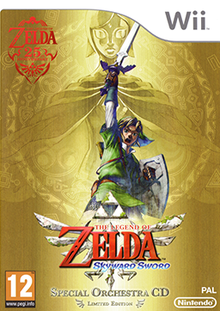 Finally you got to wield total control of the Master Sword! With its thrilling Motion Plus controls, Skyward Sword came closer than any game ever has to replicating the physical movements of our favorite hero. Combined with a brilliant origin story, and a large emotional focus on the relationship between Link and Zelda, Skyward Sword is a truly brilliant addition to the series.
Finally you got to wield total control of the Master Sword! With its thrilling Motion Plus controls, Skyward Sword came closer than any game ever has to replicating the physical movements of our favorite hero. Combined with a brilliant origin story, and a large emotional focus on the relationship between Link and Zelda, Skyward Sword is a truly brilliant addition to the series.
Holly Fellmeth: I was always one to embrace the Wii remote and motion controls in general, and in the case of Skyward Sword, I’m glad I did: not only is the game’s design top-notch, but with an open mind, swinging the Wii remote to outsmart enemies is an incredibly satisfying feeling.
Lewis Pugh: Skyword Sword is the only game that attempted one-to-one motion sword controls and may remain the only game in the series ever to do so. I found this an extremely refreshing experience. Maybe it was due to the long amount of time I clocked into Wii Sports Resort, thanks to it’s fun, competitive multiplayer modes that can make for heated gaming sessions? Maybe it’s a more personal pretence which I happen to click with? Either way I found the motion control great and genuinely making the game more immersive. It also made puzzle solving and fighting enemies fresh again instead of just going through the motions. In addition to the motion-control stuff, the story, although slow to start, turned out to be my favourite traditional Zelda story (with non-traditional story award going to Majora’s Mask). The characters had the right mix of cartoon whimsy and human enough to relate. It’s also one of the only Zelda games that get’s you to care about Zelda, and Links relationship to her. On top of all that it makes a great origin story and with some of the best music in the series, some pieces even being orchestrated, Skyword Sword leaves a lasting impression that is hard to beat.
4. A Link To The Past – SNES, 1991
 Returning to its roots, after the failures of Zelda 2, A Link To The Past is a remarkable blend of vast exploration, complex puzzles and action-filled combat. Upon waking up, on a stormy night, a voice calls out to you in the dark. Within moments a sword is thrust into your hands and the most amazing journey begins. Not one, but two, beautiful, immersive worlds awaited you as this game captured the imagination like no game before it. Everything about this game is brilliant: the music is powerful, the graphics bounce from bright and vivid to dark and sinister, the dungeons twist and turn, a delightful blend of monsters and magic around every corner. A Link To The Past set the standard for Zelda games, concreted the foundation for a series that continues to suck us into its glorious universe
Returning to its roots, after the failures of Zelda 2, A Link To The Past is a remarkable blend of vast exploration, complex puzzles and action-filled combat. Upon waking up, on a stormy night, a voice calls out to you in the dark. Within moments a sword is thrust into your hands and the most amazing journey begins. Not one, but two, beautiful, immersive worlds awaited you as this game captured the imagination like no game before it. Everything about this game is brilliant: the music is powerful, the graphics bounce from bright and vivid to dark and sinister, the dungeons twist and turn, a delightful blend of monsters and magic around every corner. A Link To The Past set the standard for Zelda games, concreted the foundation for a series that continues to suck us into its glorious universe
3. A Link Between Worlds – 3DS, 2013
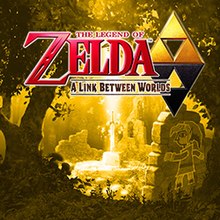 After more than 25 years, and a brilliant slew of games, it would be very easy for a series to grow stale, and when it first appeared that A Link Between Worlds was just a rehashing of A Link To The Past, it seemed as if the Zelda series had finally grown stale. Instead it turned out to be anything but stale. A familiar world was graced with a fresh new story, unique new twists and a remarkably different gameplay mechanic. The ability to turn into a painting and move along the walls, while it may not sound all that appealing, delivers a brilliant new set of challenges and leads to some of the most incredible puzzles this series has ever seen. Combined with a fantastic soundtrack, brilliant dungeons and several other mechanics twists, A Link Between Worlds is a wonderful trip back to a land from Hyrule’s past.
After more than 25 years, and a brilliant slew of games, it would be very easy for a series to grow stale, and when it first appeared that A Link Between Worlds was just a rehashing of A Link To The Past, it seemed as if the Zelda series had finally grown stale. Instead it turned out to be anything but stale. A familiar world was graced with a fresh new story, unique new twists and a remarkably different gameplay mechanic. The ability to turn into a painting and move along the walls, while it may not sound all that appealing, delivers a brilliant new set of challenges and leads to some of the most incredible puzzles this series has ever seen. Combined with a fantastic soundtrack, brilliant dungeons and several other mechanics twists, A Link Between Worlds is a wonderful trip back to a land from Hyrule’s past.
2. Ocarina of Time – N64, 1998
– Holly Fellmeth & Justin Riley
 One of the most thrilling, beautiful games ever made, Ocarina of Time took all the magic of the Zelda series and pulled it into a 3-dimensional world. All the series elements were still there, intricate dungeons, mind-bending puzzles, hideous monsters and a vastly gorgeous landscape, only now it was presented in a more vivid, lifelike way. From the various townsfolk roaming about, to the constant rising and setting of the sun, Ocarina of Time made Hyrule feel more real than ever. You could spend days just roaming the lands, exploring its various locations, searching for secrets, hunting heart pieces and golden Skulltulas. Ocarina of Time found the perfect blend: a remarkable story, innovative dungeons, and one of the most moving soundtracks to date.
One of the most thrilling, beautiful games ever made, Ocarina of Time took all the magic of the Zelda series and pulled it into a 3-dimensional world. All the series elements were still there, intricate dungeons, mind-bending puzzles, hideous monsters and a vastly gorgeous landscape, only now it was presented in a more vivid, lifelike way. From the various townsfolk roaming about, to the constant rising and setting of the sun, Ocarina of Time made Hyrule feel more real than ever. You could spend days just roaming the lands, exploring its various locations, searching for secrets, hunting heart pieces and golden Skulltulas. Ocarina of Time found the perfect blend: a remarkable story, innovative dungeons, and one of the most moving soundtracks to date.
Holly Fellmeth: When I was a kid and played Ocarina of Time probably a hundred times over, I had no idea the game was receiving what would become the highest critical praise of all time for a video game; I just loved that it captured my imagination in a way nothing else ever would.
1. Majora’s Mask – N64, 2000
– Colin Crompton & Harrison Milfeld
 Arguably the most eccentric and ambitious Zelda game, Majora’s Mask is disputedly the greatest Zelda game ever made. While its horrifying three day cycle may be a large turnoff to some, that cycle causes the game to have a constant sense of despair, as you must witness the destruction of Termina over and over again. A strange new villain, the Skull Kid, a visibly angry moon crashing towards you, and Links lost sense of self, all combine to make this the darkest, most emotion wrought Zelda game ever.
Arguably the most eccentric and ambitious Zelda game, Majora’s Mask is disputedly the greatest Zelda game ever made. While its horrifying three day cycle may be a large turnoff to some, that cycle causes the game to have a constant sense of despair, as you must witness the destruction of Termina over and over again. A strange new villain, the Skull Kid, a visibly angry moon crashing towards you, and Links lost sense of self, all combine to make this the darkest, most emotion wrought Zelda game ever.Colin Crompton: Yes, the dark horse of the Zelda games. It takes the series into strange territory as Link struggles to save Termina from complete annihilation as well as trying to fulfill several requests from clock towns bizarre residents. What I enjoy most from Majora’s Mask is the departure from some of the Zelda traditions. This is a Zelda game, yet Princess Zelda barely gets a mention. Ganon is nowhere to be seen, instead we get a far more interesting antagonist in Skull Kid.
Harrison Milfeld: Choosing what your favorite Zelda title is a difficult task in and of itself. It’s essentially asking which one of my future children I want to keep while I send the rest of the coal mines…okay, maybe not that harsh. But, I digress from that dark anecdote and now tell you about my favorite Zelda title. When conjuring up my list or ranking, I knew that the majority of these games were ones that I could go back and play again and never tire of it. Starting off, Majora’s Mask, my favorite 3D Zelda title, and the only one where I was able to 100 percent the quest. I remember watching my older brother play Ocarina of Time daily and after my playthrough, I knew I was excited for a sequel with more of the same. However, what drives the Zelda formula is not just playing it safe but introducing a quirky mechanic that somewhat hides the fact that this formula could or could not get stale. The Three-day time mechanic of Majora’s Mask made everything seem more fleshed out. Eiji Aonuma wisely took the steps to make this a harder and darker Zelda entry. Not only that, but the NPC conversations made you care about revisiting them despite going back in time and erasing what you did previously. With a 3D remake on its way, looking back on Majora’s Mask makes me realize that a quirky, weird, and risky change of pace in game design can be worth the experience and work alone.
Lewis Pugh: This Zelda game’s greatest strength is that it stray the furthest from the traditional Zelda formula in both gameplay rhythm and it’s dark and all-consuming atmosphere. It really is the weird and freaky moments that are the most memorable, not just in Majora’s Mask itself but over the whole Zelda franchise. The atmosphere is backed up by a quirky but ultimately solid 3-day doomsday mechanic, not only does this keep you on your toes but you can use this to your advantage to track down every NPC’s daily routines, an exercise that pays off in many of its side missions. It also has some of the best dungeon designs in Zelda history, even if there’s only 4 of them. Majors’s Mask rebellious nature and memorial moments and sights marks its place.
